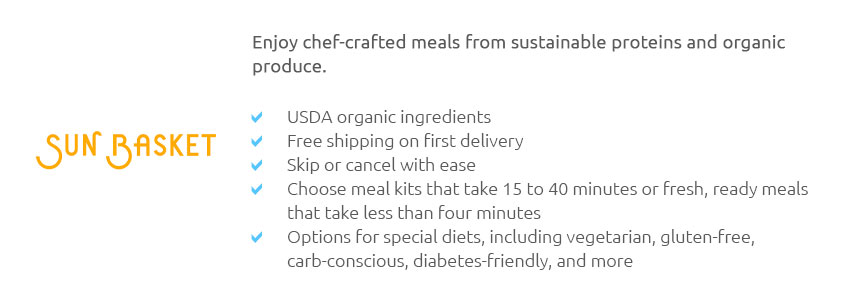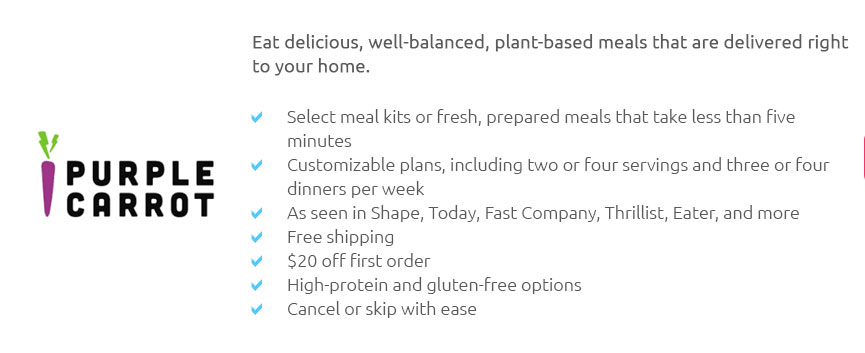 |
 |
 |
|---|
 |
|---|
 |
||||||
|---|---|---|---|---|---|---|
|
||||||
 |
 |
|||||
 |
 |
|||||
 |
 |
|||||
 |
 |
|||||
 |
 |
|||||
 |
 |
|---|
Exploring the World of Organic Food Delivery Services: Common Mistakes to AvoidIn an era where convenience meets health consciousness, the rise of organic food delivery services has revolutionized how we think about grocery shopping. These services promise fresh, pesticide-free produce delivered right to your doorstep, an attractive proposition for those striving for a healthier lifestyle. However, navigating the myriad options available can be daunting, and many consumers fall into common traps. Here, we’ll explore some of these pitfalls and offer tips to help you make the best choices. Firstly, one of the most prevalent mistakes is not researching the source of the produce. Many companies claim to offer organic products, but the term 'organic' can be quite nebulous without proper certification. Always look for services that provide transparency about their sourcing practices and certification. Companies that partner with local farmers or have their own farms often offer a more trustworthy option. Checking for certifications from reputable organizations can also save you from dubious claims. Another common oversight is ignoring the variety of products offered. While it may seem convenient to order all your groceries from a single service, it is essential to ensure that the company provides a wide variety of fresh produce to meet your dietary needs. Limiting yourself to a few items can lead to a repetitive diet, which might not provide the full range of nutrients your body requires. Explore different services to find one that offers a broad spectrum of fruits, vegetables, and other organic goods. Furthermore, consumers often underestimate the importance of delivery schedules and fees. Some services might offer competitive prices on their produce but compensate with high delivery fees or restrictive delivery windows. Consider the logistical aspects of your organic food delivery to ensure it aligns with your lifestyle. Flexible delivery options can make a significant difference, especially if your schedule is unpredictable. Price is a significant factor that can lead to misjudgments. While organic food often comes at a premium, it is crucial to evaluate whether the service offers value for money. Compare prices across different platforms and consider the quality and source of the produce. Sometimes, slightly higher prices are justified if the service guarantees higher-quality organic products. Additionally, overlooking the subscription model can lead to unexpected costs. Many services offer subscription-based deliveries, which can be cost-effective if used wisely. However, failing to assess your actual needs might lead to waste and higher expenses. Evaluate your consumption patterns before committing to a subscription plan.
Lastly, a mistake often made is ignoring customer reviews and feedback. Other users’ experiences can provide invaluable insights into the reliability and quality of a service. Look for reviews that discuss both the positives and negatives, as they can help paint a more comprehensive picture. In conclusion, while organic food delivery services offer a convenient way to maintain a healthy diet, careful consideration and research are crucial in making informed decisions. By avoiding these common mistakes, you can enjoy the benefits of fresh, organic produce without the pitfalls. So, whether you're a seasoned organic food enthusiast or a newcomer, remember to scrutinize each service with a critical eye to ensure you're getting the best possible experience. https://sunbasket.com/?srsltid=AfmBOorAJBJjK0YG6u-vbIuH27OyEcLl2D4lT1HNwpWDo53lQ9zod9S5
We believe everyone deserves to enjoy good food made from clean, high-quality ingredients and organic fresh produce. Sunbasket offers healthy meals delivered, ... https://www.farmfreshtoyou.com/?srsltid=AfmBOork3KZOqJkASwYb07XdKFWVIgE8PTWzpMIatpGrbceQ7tqSFTlp
Want to make changes to the produce items arriving in your delivery? No ... https://daily-harvest.com/?srsltid=AfmBOoon5smPaCpul34NIc_8s0dyQQgpI_plAPySYJETZ1v35nQVT4Mx
Daily Harvest creates delicious and nourishing smoothies, soups, oats, lattes and more. Our food is built on organic, thoughtfully sourced fruits and ...
|
|---|


